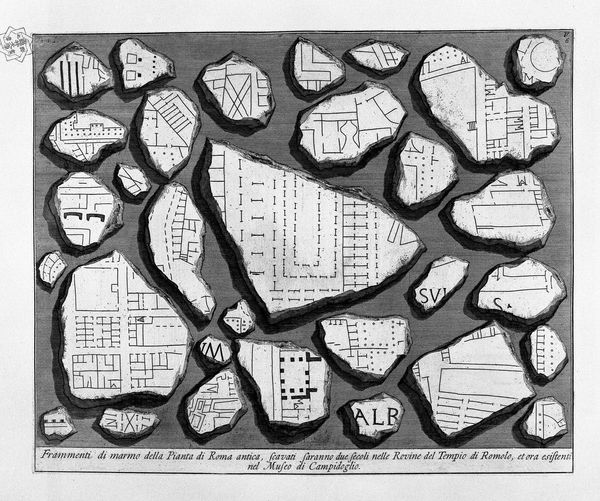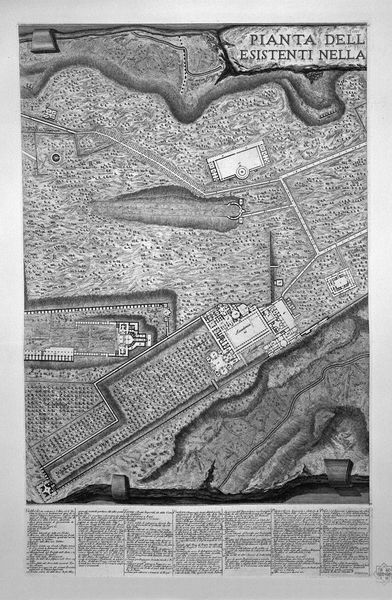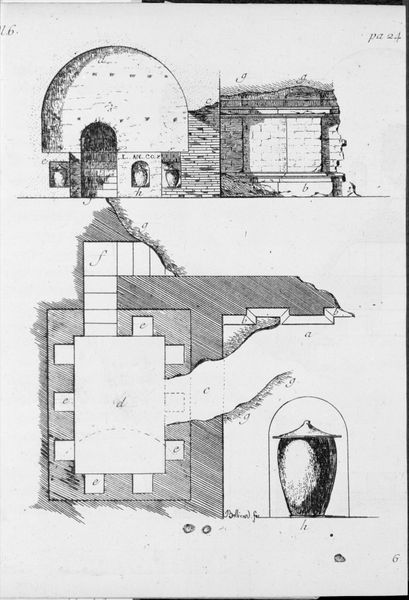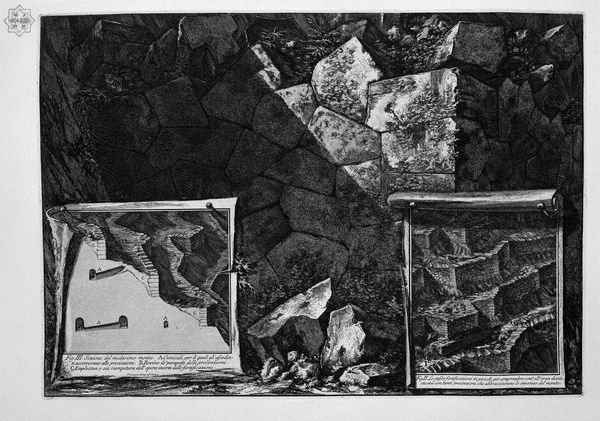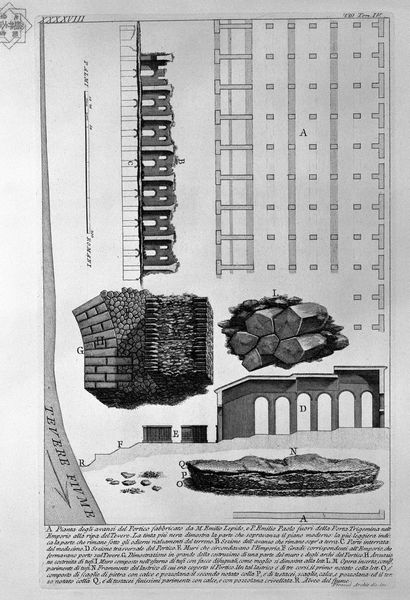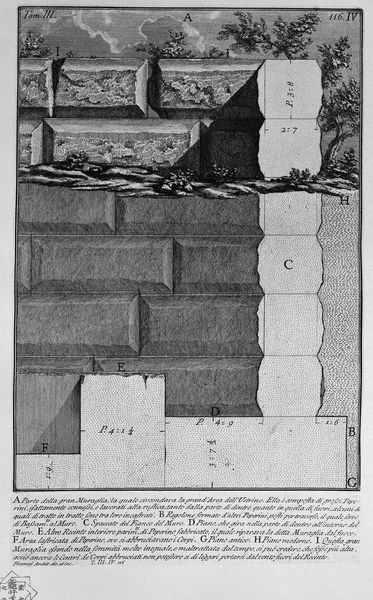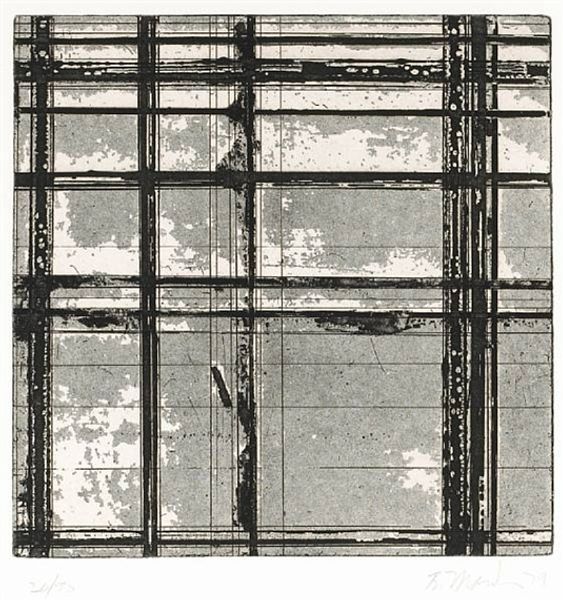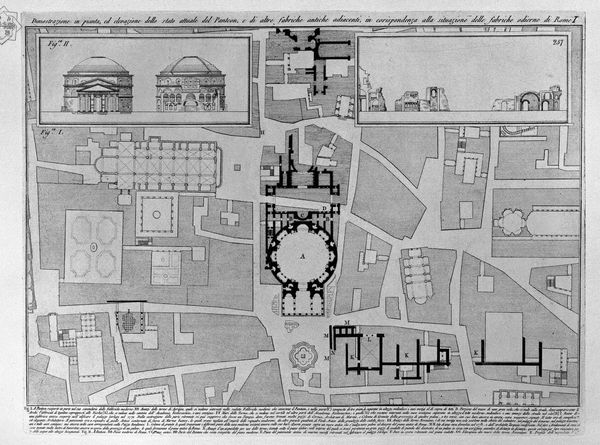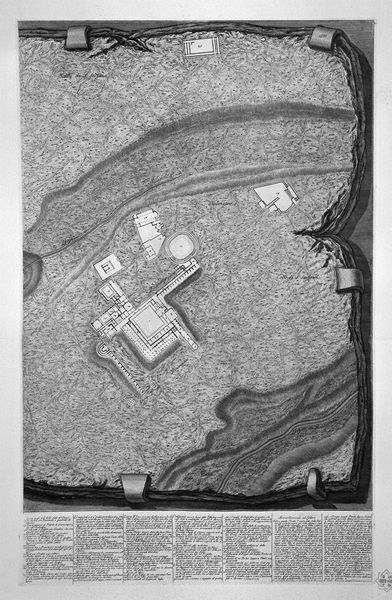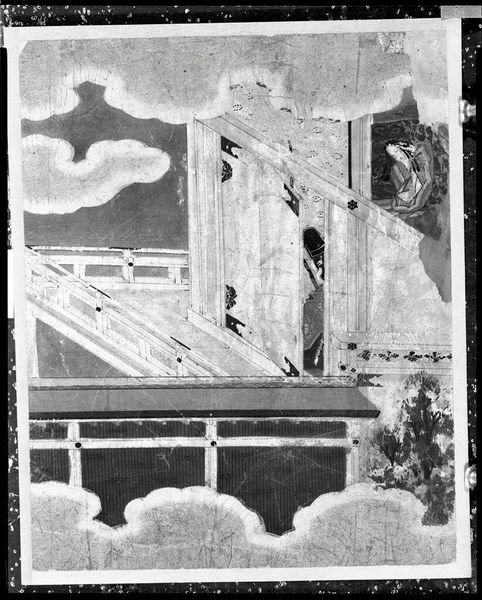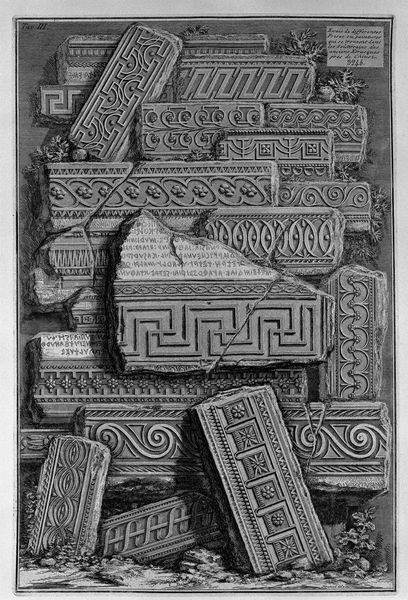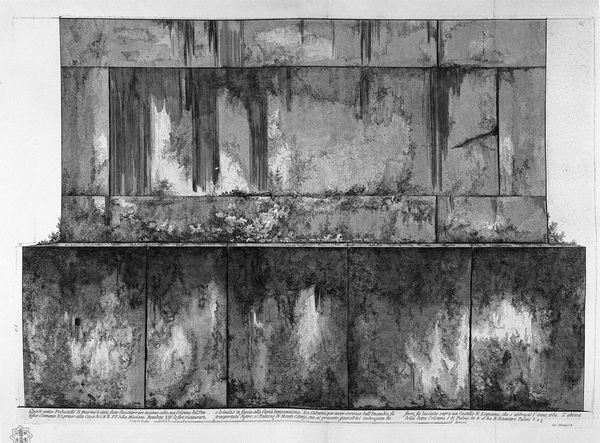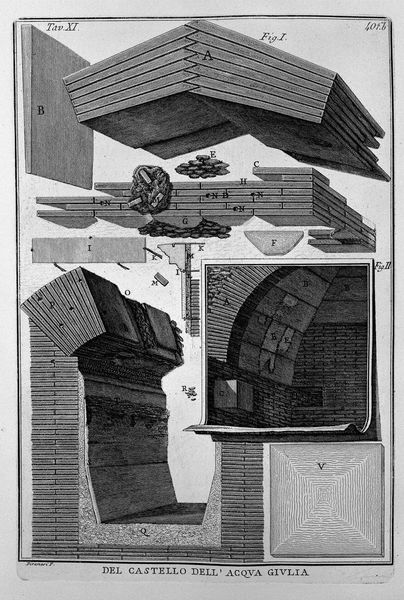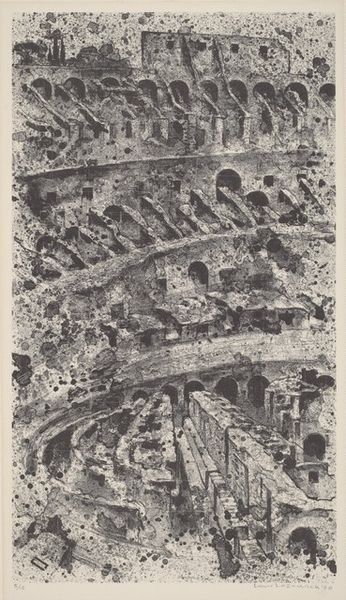
The Roman antiquities, t. 1, Plate IV. Map of ancient Rome and Forma Urbis. 1756
0:00
0:00
print, engraving, architecture
#
neoclacissism
# print
#
form
#
linocut print
#
geometric
#
line
#
cityscape
#
engraving
#
architecture
Copyright: Public domain
This print was made by Giovanni Battista Piranesi in the mid-18th century, using etching – a process involving acid, metal plates, and skilled hand-work with specialized tools. The image shows fragments of the Forma Urbis Romae, a massive marble map of ancient Rome created in the early 3rd century. Piranesi’s print meticulously reproduces these broken pieces, capturing their texture and form. Look closely, and you'll notice the network of lines etched into the metal, simulating the original map's intricate details. Piranesi was fascinated by the material culture of Rome, and the work involved in making it. The etching, with its layers of labor, mirrors the construction of Rome itself. It's a tribute to the skill of the original Roman artisans, and also a meditation on the power of empires to decay, leaving only fragments for future generations to ponder. This blurring of past and present, labor and aesthetics, is a central theme in Piranesi’s work.
Comments
No comments
Be the first to comment and join the conversation on the ultimate creative platform.
